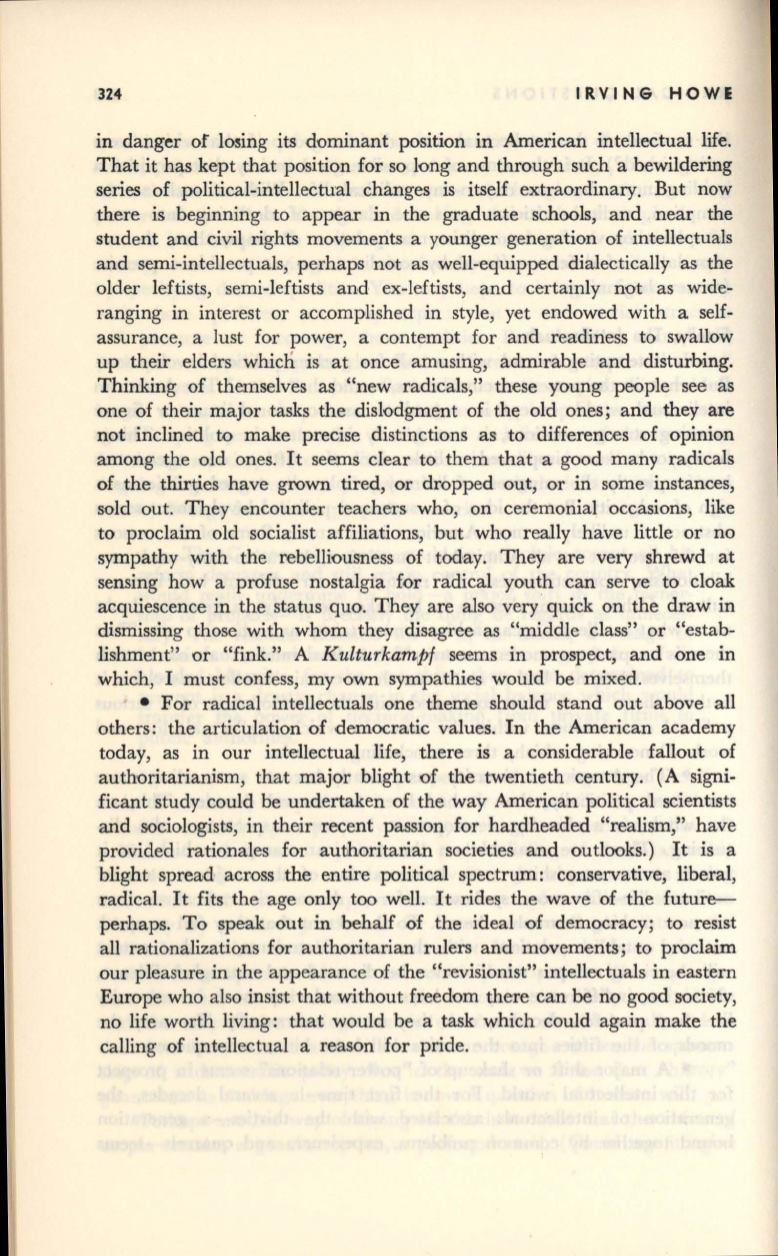
324
IRVING HOWE
in danger of losing its dominant position in American intellectual life.
That it has kept that position for so long and through such a bewildering
series of political-intellectual changes is itself extraordinary. But now
there is beginning to appear in the graduate schools, and near the
student and civil rights movements a younger generation of intellectuals
and semi-intellectuals, perhaps not as well-equipped dialectically as the
older leftists, semi-leftists and ex-leftists, and certainly not as wide–
ranging in interest or accomplished in style, yet endowed with a self–
assurance, a lust for power, a contempt for and readiness to swallow
up their elders whiCh is at once amusing, admirable and disturbing.
Thinking of themselves as "new radicals," these young people see as
one of their major tasks the dislodgment of the old ones; and they are
not inclined to make precise distinctions as to differences of opinion
among the old ones. It seems clear to them that a good many radicals
of the thirties have grown tired, or dropped out, or in some instances,
sold out. They encounter teachers who, on ceremonial occasions, like
to proclaim old socialist affiliations, but who really have little or no
sympathy with the rebelliousness of today. They are very shrewd at
sensing how a profuse nostalgia for radical youth can serve to cloak
acquiescence in the status quo. They are also very ·quick on the draw in
dismissing those with whom they disagree as "middle class" or "estab–
lishment" or "fink." A
Kulturkampf
seems in prospect, and one in
which, I must confess, my own sympathies would be mixed.
• For radical intellectuals one theme should stand out above all
others: the articulation of democratic values. In the American academy
today, as in our intellectual life, there is a considerable fallout of
authoritarianism, that major blight of the twentieth century. (A signi–
ficant study could be undertaken of the way American political scientists
and sociologists, in their recent passion for hardheaded "realism," have
provided rationales for authoritarian societies and outlooks.) It is a
blight spread across the entire political spectrum: conservative, liberal,
radical. It fits the age only too well. It rides the wave of the future–
perhaps. To speak out in behalf of the ideal of democracy; to resist
all rationalizations for authoritarian rulers and movements; to proclaim
our pleasure in the appearance of the "revisionist" intellectuals in eastern
Europe who also insist that without freedom there can be no good society,
no life worth living: that would be a task which could again make the
calling of intellectual a reason for pride.


